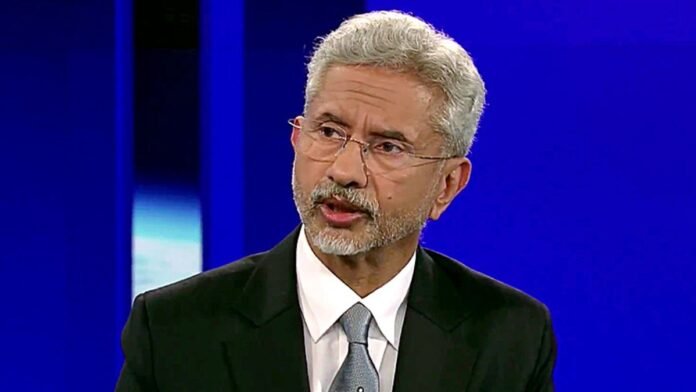In recent times, geopolitical dynamics in South Asia have witnessed a subtle shif. Amidst this backdrop, India’s External Affairs Minister, Dr. S. Jaishankar, has emphatically responded to the ‘India Out’ campaign gaining traction in countries like the Maldives and Bangladesh. His stance underscores a critical need to reevaluate perceptions and assert India’s role in the region without succumbing to fear of China.
The ‘India Out’ campaign, which surfaced notably in the Maldives and Bangladesh, has sparked debates about the future of India’s influence in its immediate neighborhood. As China extends its economic, infrastructural, and strategic outreach through initiatives like the Belt and Road Initiative (BRI), concerns over India’s waning influence have intensified. However, Dr. Jaishankar’s response presents a compelling argument against apprehensions about China’s growing presence.
At the heart of Dr. Jaishankar’s reaction lies a reassurance of India’s inherent strengths and enduring partnerships in the region. He emphasizes the need to engage constructively with neighboring nations, offering collaboration based on mutual respect and shared interests. By doing so, India aims to demonstrate that its relationship with its neighbors transcends transactional interests and is grounded in historical, cultural, and economic ties.
Furthermore, Dr. Jaishankar’s stance challenges the narrative of inevitability often associated with China’s rise. While acknowledging China’s economic prowess and global ambitions, he calls for a pragmatic assessment of its actions, highlighting potential pitfalls and risks associated with over-dependence on Beijing. This nuanced approach contrasts starkly with alarmist narratives that portray China as an unstoppable force, thereby empowering regional actors to make informed decisions based on their long-term interests.
Moreover, Dr. Jaishankar’s reaction underscores the importance of proactive diplomacy in countering narratives detrimental to India’s interests. By addressing concerns raised by the ‘India Out’ campaign head-on, he reaffirms India’s commitment to engaging with its neighbors on issues of mutual concern while dispelling misconceptions that could strain bilateral ties. Such diplomatic initiatives are crucial in maintaining stability and fostering trust among neighboring nations amidst evolving geopolitical dynamics.
Additionally, Dr. Jaishankar’s response reflects India’s broader foreign policy objectives, which prioritize strategic autonomy and regional cooperation. By advocating for a balanced approach that neither dismisses nor exaggerates China’s influence, he seeks to foster an environment conducive to constructive dialogue and collaboration. This approach aligns with India’s vision of a multipolar world order where nations cooperate based on principles of sovereignty, equality, and mutual respect.
Furthermore, Dr. Jaishankar’s reaction serves as a reminder of the enduring strategic significance of South Asia in India’s foreign policy calculus. Despite the growing complexity of regional dynamics, India remains committed to preserving its influence and enhancing cooperation with its neighbors. This commitment extends beyond mere rhetoric, as evidenced by India’s proactive engagement in initiatives like the South Asian Association for Regional Cooperation (SAARC) and the Bay of Bengal Initiative for Multi-Sectoral Technical and Economic Cooperation (BIMSTEC).
In addition, Dr. S. Jaishankar’s response to the ‘India Out’ campaign in the Maldives and Bangladesh underscores the need for a nuanced and proactive approach in managing India’s regional relationships. By advocating for constructive engagement, pragmatic diplomacy, and strategic autonomy, he reaffirms India’s enduring commitment to its neighbors while dispelling fears of China’s growing influence. In doing so, Dr. Jaishankar presents a compelling vision of India as a responsible regional power, capable of navigating the complexities of contemporary geopolitics without succumbing to fear or apprehension. As South Asia continues to evolve amidst shifting geopolitical currents, India’s steadfastness and diplomatic acumen will undoubtedly play a pivotal role in shaping the region’s future trajectory.
Amidst the geopolitical maneuvering and competition for influence in South Asia, Dr. Jaishankar’s response also highlights the importance of fostering people-to-people ties and cultural exchanges as essential components of India’s foreign policy. By nurturing cultural diplomacy alongside traditional diplomatic channels, India can deepen understanding and forge stronger bonds with its neighbors, transcending political differences and fostering a sense of shared identity and solidarity. This holistic approach to regional engagement not only reinforces India’s soft power but also lays the foundation for sustainable and resilient partnerships that withstand the test of time.

